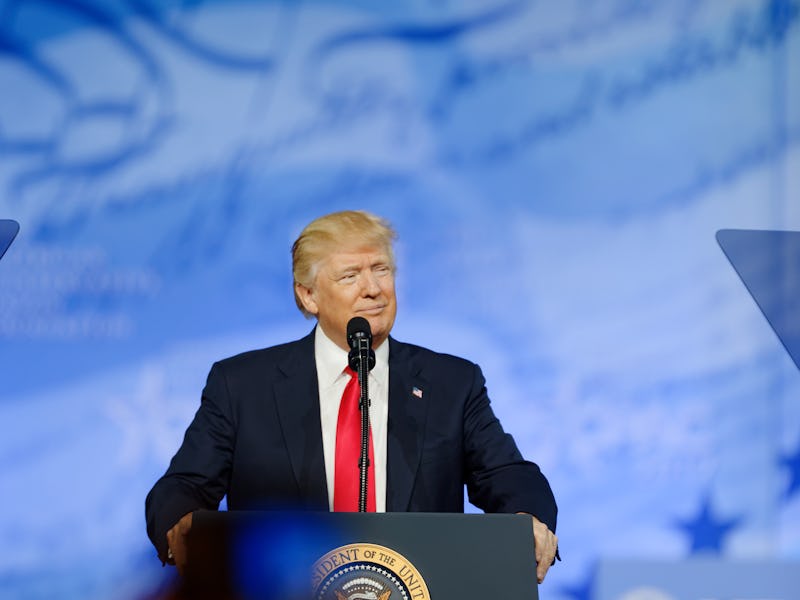President Donald Trump has claimed victory for the American car industry. In his State of the Union speech on Tuesday, Trump made reference to government action that has helped the industry recover. His administration has made two big moves in the space since coming to office, but their effect is uncertain.
“In Detroit, I halted Government mandates that crippled America’s autoworkers — so we can get the Motor City revving its engines once again,” Trump said. “Many car companies are now building and expanding plants in the United States — something we have not seen for decades. Chrysler is moving a major plant from Mexico to Michigan; Toyota and Mazda are opening up a plant in Alabama. Soon, plants will be opening up all over the country.”
Trump’s most visible action in the auto industry has been the return of the emissions midterm review, announced in March 2017. This focused on changing the rules around something called corporate average fuel economy. Under the Obama administration’s rules, automakers would need to balance fuel efficiency across their range of cars to meet an average rating. The average is weighted on sales, so automakers need to ensure they sell enough high-efficiency cars to comply.
An electric car charging.
The rule, locked in place just before Obama left office, targeted 54.5 miles per gallon by the year 2025. Originally, this was set for a midterm evaluation to ensure automakers could meet this target, but the administration pushed ahead with an early review to lock the rule in place.
Corporate average fuel economy is nothing new. The rating was first introduced in 1973 to protect against gas shortages during the Arab oil embargo. In 2007, the Bush administration signed a bill that instructed the Department of Transportation to set the level at the “maximum feasible” level each year after 2020.
Beyond the midterm review, Trump has also introduced a new federal tax law that slashes rates from 35 percent to 21 percent. Fiat Chrysler pointed to this as the reason it moved operations to Michigan. However, some analysts believe the move is more likely a result of a suggested renegotiation of the North America Free Trade Agreement, with University of Michigan business professor Erik Gordon telling Detriot Free Press that Trump has “scared car companies” into assembling in the U.S.
The actions have had an unclear effect on business, as only the Toyota move was announced after inauguration. Nonetheless, Trump touted his policies as working.
“This is all news Americans are unaccustomed to hearing — for many years, companies and jobs were only leaving us,” Trump said. “But now they are coming back. Exciting progress is happening every day.”
